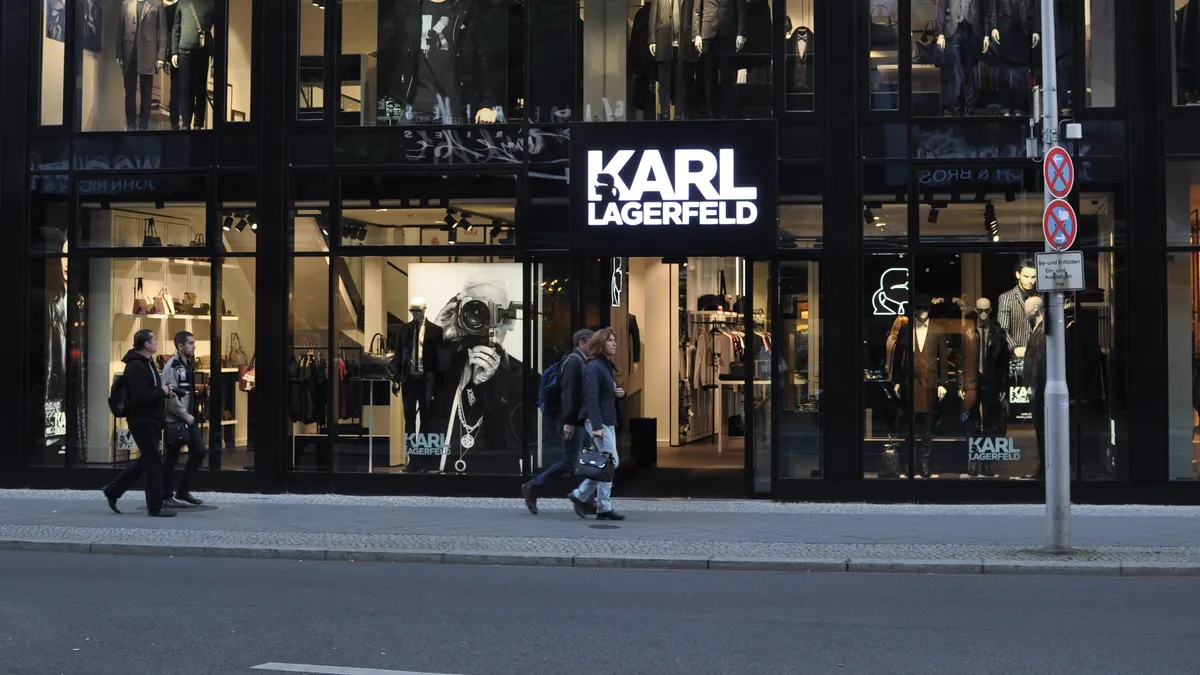Dive Brief:
-
Brand conglomerate G-III Apparel Group on Monday said it will acquire the remaining 81% interest in Karl Lagerfeld for €200 million in cash ($210 million, per an emailed press release).
-
Subject to adjustments and customary closing conditions, the deal will give G-III full control of the brand, having acquired a 19% minority stake in 2016, after a 2015 joint venture that gave G-III brand rights to Lagerfeld’s apparel and accessories in the North America market.
-
G-III's near-term strategy will include growth in digital, retail and wholesale, and expansion in geographic reach, categories and licensing opportunities, the company said. The acquisition is expected to be moderately accretive this year and more so in future years, executives said on a conference call Monday.
Dive Insight:
On Monday morning, G-III Chief Financial Officer Neal Nackman said the company has kept its eye on Karl Lagerfeld since first tying up with the brand several years ago.
"It's been developing nicely," he said. "We certainly have some concerns about the overall environment, but we're really planning for the future. And this seemed like a good time for us."
The company expects the acquisition, with $200 million in additional initial annual sales, could generate an initial annual revenue base of some $375 million, per its release. Combined, the Karl Lagerfeld business could reach annual net revenue in sales to end consumers of between $1 billion and $2 billion-plus, the company also said.
Much of that will come via retail. A couple of years ago, in liquidating 110 Wilsons Leather and 89 G.H. Bass stores, G-III backed away from much of its retail business in order to focus on its wholesale operations. At Karl Lagerfeld, however, G-III will work to expand its retail operations, Nackman said on Monday. "Retail growth will be an important part of the growth that we've been looking at, specifically direct to consumer is also a big part of it," he said.
Speaking to analysts, Nackman pointed out that its DKNY business is more focused on wholesale, whereas Karl Lagerfeld is more retail and direct-to-consumer oriented. "We expect that plenty of opportunity to continue to grow that, in addition to a wholesale business that, proportionately, is not as significant as what we have in DKNY," he said.
G-III's business is centered on licensing, but its success running DKNY, acquired from LVMH in 2016 for $650 million, "give us confidence in its ability to execute and grow established labels," C.L. King analysts said in a Monday client note regarding the Lagerfeld deal.
As far as category expansion, Lagerfeld expects to enter the jeans category "shortly," and there's also opportunity in footwear and eyewear, among other areas, Nackman said.
















